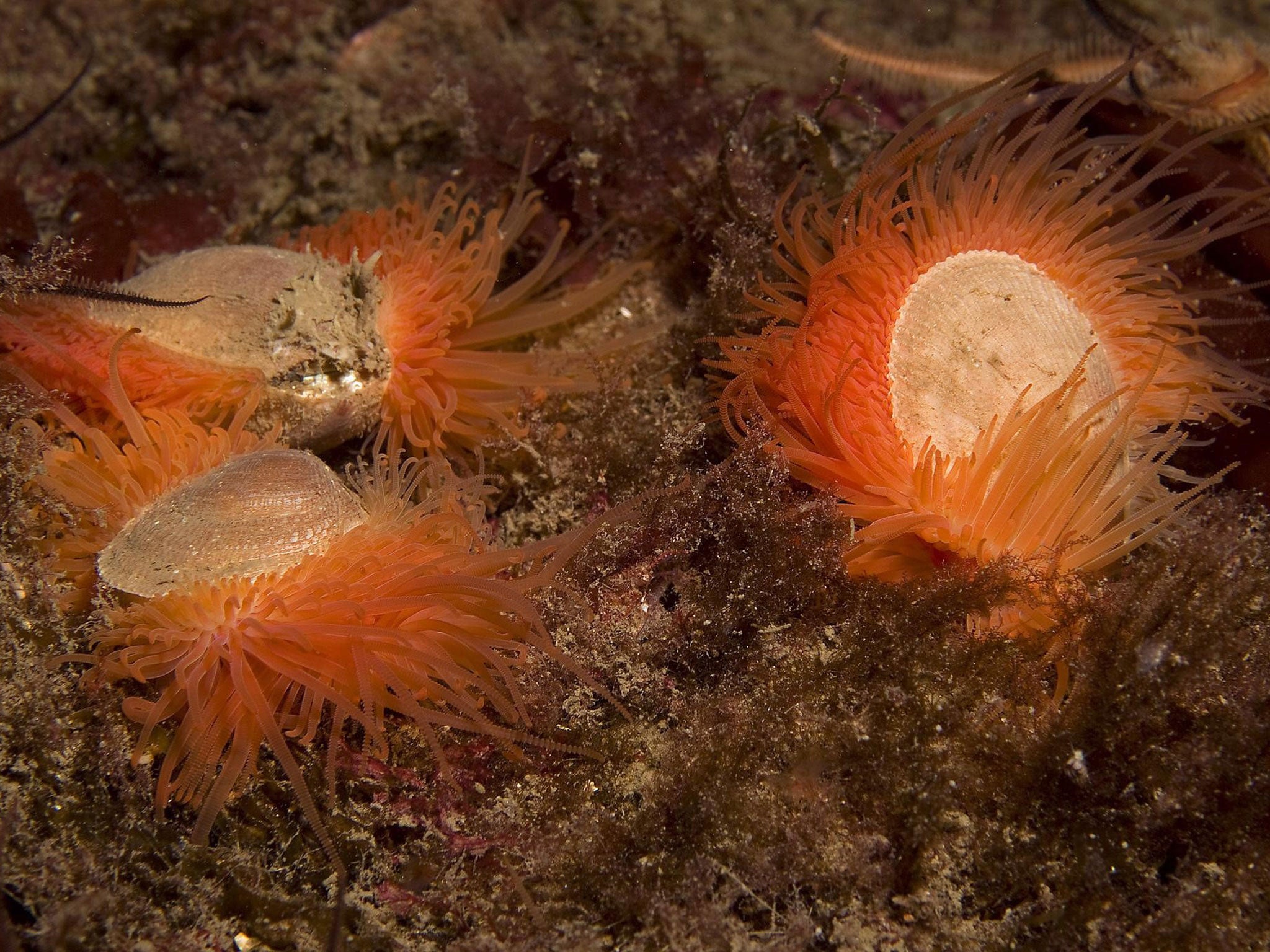Shellfish reef off UK's west coast could be biggest in world

The discovery of a large shellfish reef on the west coast of the UK could be the biggest find of its kind in the world, experts believe.
More than 100 million brightly coloured and rare shellfish have been found in Loch Alsh, a sea inlet between Skye and the Scottish mainland.
The reef of flame shells, or Limaria hians, was found to cover an area of 4.6 square miles (7.5 sq km) during a survey commissioned by Marine Scotland.
It is the largest known colony of flame shells in the UK and possibly the world, according to experts.
Scottish Environment Secretary Richard Lochhead said: "The seas around Scotland are a hotbed of biodiversity and the clean and cold waters support many fascinating and beautiful species.
"With Scottish waters covering an area around five times bigger than our landmass, it's a huge challenge to try and understand more about our diverse and precious sea life.
"This important discovery may be the largest grouping of flame shells anywhere in the world.
"And not only are flame shells beautiful to look at, these enigmatic shellfish form a reef that offers a safe and productive environment for many other species."
Flame shells have a similar shape to scallops with many neon orange tentacles that appear between the two shells.
They group together on the sea bed and their nests create a living reef to support hundreds of other species.
The Loch Alsh survey was carried out by Heriot-Watt University on behalf of Marine Scotland.
Dr Dan Harries, from the university's School of Life Sciences, said: "Too often, when we go out to check earlier records of a particular species or habitat we find them damaged, struggling or even gone.
"We are delighted that in this instance we found not just occasional patches but a huge and thriving flame shell community extending right the way along the entrance narrows of Loch Alsh.
"This is a wonderful discovery for all concerned."
Ben James, marine survey and monitoring manager at Scottish Natural Heritage, said: "Our job has been to advise ministers on suitable places for Marine Protected Areas (MPAs) and to do that we need to have enough information about what's in the marine environment.
"Whilst we had some records of flame shells in Loch Alsh, we had no idea how big the bed was.
"We needed more certainty before recommending them as a protected feature of this MPA proposal.
"It's great to have this new information and it's yet another example of the fantastic diversity of Scotland's marine environment."
The Scottish Government applied to the European Union last month to designate an area in the north-east Atlantic as a conservation area.
Hatton Bank, near the Isle of Lewis, is around 9,752 sq miles (15,694 sq km) and features a large volcanic bank which is home to a large variety of corals.
WWF Scotland spokesman Lang Banks said: "These surveys highlight that Scotland's seas and coasts are home to a truly amazing range of stunning wildlife.
"Who needs space travel when we've still to fully explore and understand the oceans and seas here on planet Earth?
"From helping inform the appropriate deployment of marine renewables to supporting the roll out of a network of MPAs, these survey findings will prove invaluable in helping ensure the recovery of Scotland's seas."
PA
Join our commenting forum
Join thought-provoking conversations, follow other Independent readers and see their replies
Comments
Bookmark popover
Removed from bookmarks